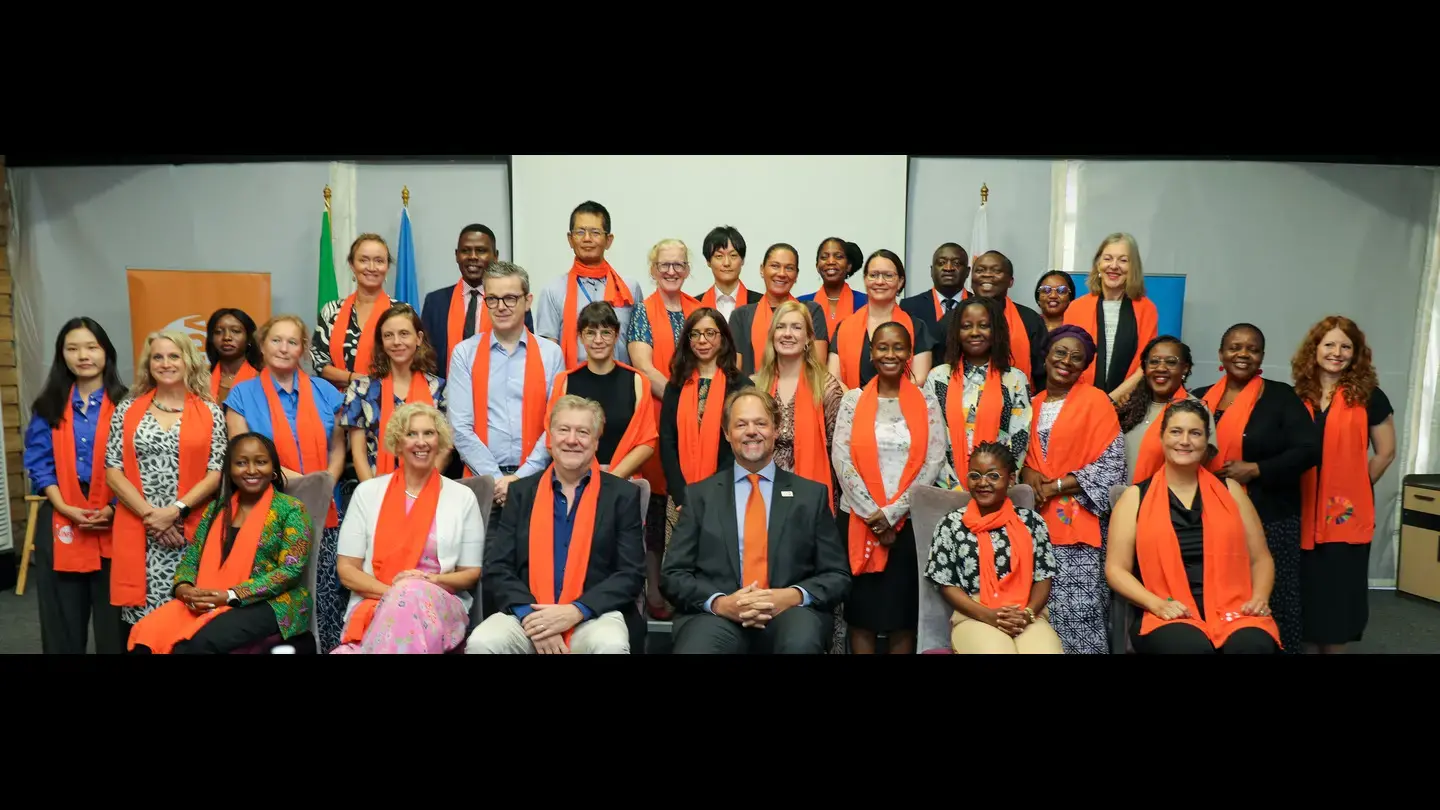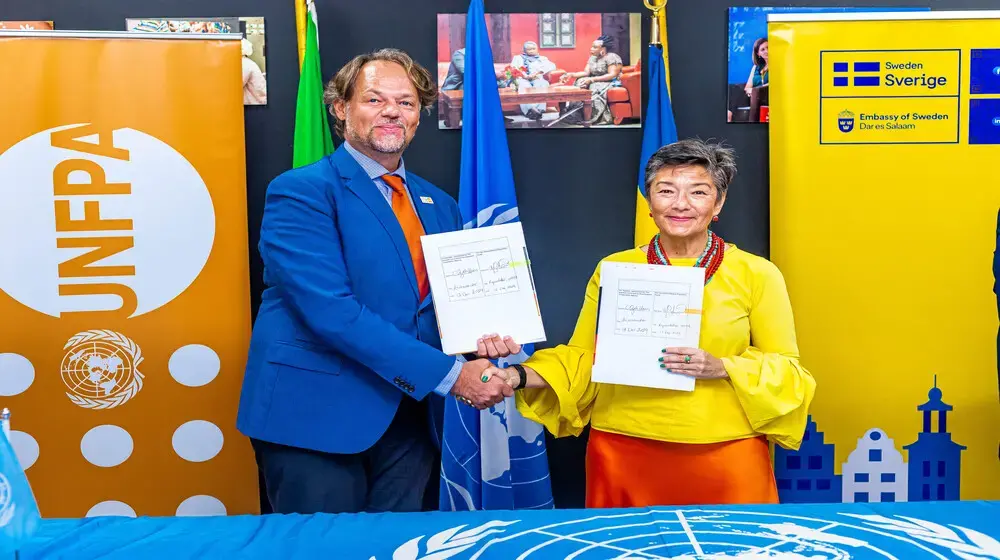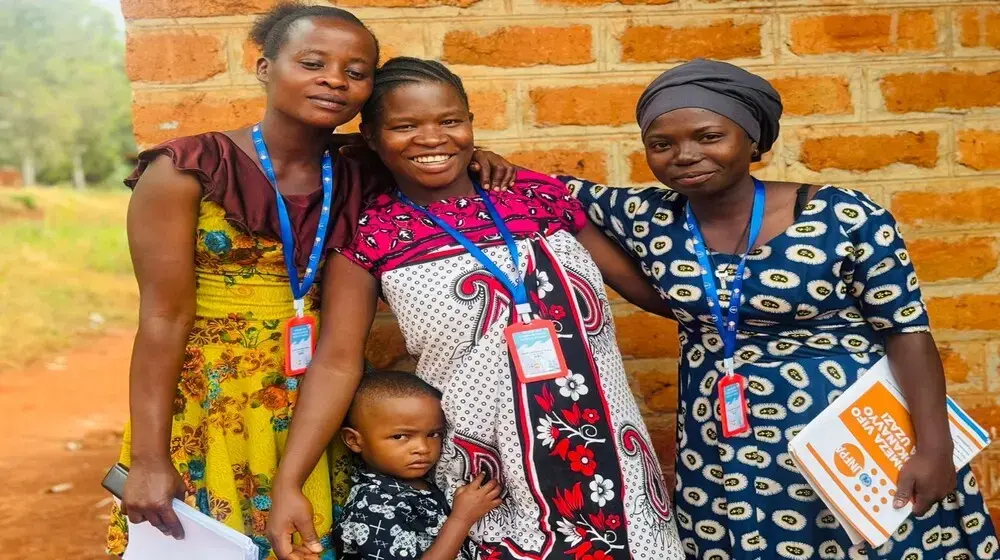The generation of young people aged 10 to 24 years of age is the largest ever in history, 1.8 billion people. Ninety per cent of these young people live in developing countries such as Tanzania. Forty four percent of the population in Tanzania are below 15 years of age, and 19 per cent of the population is aged between 15-24; this means that 63 per cent of the population is under the age of 24.
This large segment of the Tanzania population face a number of challenges related to their sexual and reproductive health (SRH) including high rates of HIV infection, early sexual debut, and early marriage that contribute to teenage pregnancy. Data show that of the 1.35 million people living with HIV in Tanzania, 9 per cent are young people aged 15-24 years. One in every four young women aged 15-19 (27 per cent) are already mothers or are pregnant with their first child. Economic deprivation that can cause young girls and boys to engage in transactional and/or unprotected sex to meet their basic needs or to improve their living conditions compound this situation.
To complement the Government of Tanzania's efforts in addressing SRH challenges faced by youth, the United Nations, through UNFPA, launched and supported the implementation of the Innovation Accelerator to find solutions to one of the most pressing SRH issues in the country – teenage pregnancy. The Innovation Accelerator, which is a mentorship-driven accelerator programme, supports young entrepreneurs with seed funding, training and skills development to generate innovative solutions in response to challenges related to sexual and reproductive health and other population development issues that affect the majority of young people. The AMUA Accelerator is implemented within this context.
Several barriers contribute to the complex situation that adolescents and young people face in Tanzania. A lack of appropriate and comprehensive sexual and reproductive health education, information and services for sexually transmitted infections including HIV and AIDS, and pregnancy-related issues mean that many adolescents and youth do not know or have the means to prevent pregnancy or protect themselves from STIs, including HIV. This situation is aggravated by taboos surrounding the provision of SRH information and education by adults including parents, teachers and health service providers.
The AMUA Accelerator project has been built to address these challenges. The project called on young people to learn about and contribute to the challenges faced by the country with a view to improving access to and the availability of quality SRH information, services and programmes by young people. The project built the capacity of young people to transform challenges into opportunities through creative entrepreneurship solutions. After a competitive selections process across the country, four teams were selected as winners; Harakati za Lucy, e-Shangazi, Maisha Package, and Mkwawa Community Art Space. Adam Mbiyallu, AMUA's Accelerator Project Manager SAHARA Sparks, said: "They are trying to solve reproductive health issues especially teenage pregnancies, and we wanted young people to come up with the concept of genetic and gender-based reproductive health ideas that will survive after the project ends."
"The approach has helped to cultivate new partnerships and promote an organizational culture that is open to innovation through interaction with external stakeholders; and develop spaces for testing and experimentation of innovative ideas and approaches”, said Dr. Hashina Begum, UNFPA Deputy Representative. Failure to invest in this huge youthful population has implications for the country’s health and development plans as it is likely to put increasing demands on the provision of social services. The large youth population will enter the labour force in the coming years and could represent a huge boost for the economy. This will only happen, however, if young people have access to reproductive health information and services that enable them to make informed choices. Choices that will help them to realize their full potential.
Dr. Hashina Begum, UNFPA Deputy Representative emphasised that: “Young people are already driving innovations in science and technology, making conscious choices that are drastically influencing patterns of consumption and production, and mobilizing to make companies, organizations and governments more socially and environmentally responsible. Where they can get information, technology, financing, mentorship, and platforms for collaboration, young innovators are able to turn their ideas into transformative solutions.”
The Innovation Accelerator initiative will significantly contribute to achieving the sustainable development goals (SDGs). In particular SDG 4 that emcompasses access to education, including vocational training for employment and entrepreneurship through mentorship; and SDG 8 that supports entrepreneurship, creativity and innovation, and encourages the formalization and growth of enterprises through access to financial services. Partnerships among governments, the private sector and civil society are key to achieving the SDGs.
The vision of achieving people-centred economic growth, as reflected by the SDGs, requires inclusive partnerships built upon principles and values, a shared vision, and shared goals that place people and the planet at the centre. Such requirement is explicitly stated in SDG 17 and specifically addressed by the Innovation Accelerator through the creation of partnerships aimed at mobilizing private resources and using them to support young entrepreneurs in developing innovative and scalable solutions to development challenges that organizations and governments can adopt.
Alvaro Rodriguez, Resident Coordinator, United Nations Tanzania said: “In order to measure progress across the Sustainable Development Goals that relate to adolescents and youth an adolescent girl who is 10 years old today will be an adult of 24 in 2030, the target year for achieving the Sustainable Development Goals. We must ensure that her path through adolescence and youth leads to a brighter future for herself, her community and the world – that is paved with rights upheld, opportunities realized and promises fulfilled.”
He continued: “I urge the private sector, the Government, donors and all investors to find possibilities to support the ideas generated from the AMUA accelerator. Most of the ideas can be developed to viable products for the benefit of the country. Investing in a healthier and more educated population and enabling young people to access opportunities for employment and entrepreneurship will provide young Tanzanians with a favourable environment to thrive in business and in their private life, and to make informed and safe decisions regarding their sexual and reproductive health.”
The UN system in Tanzania will continue to support the Government of Tanzania and other partners to test and scale up some of the new and engaging concepts to tackle pressing sexual and reproductive health challenges in the country while promoting social entrepreneurship among young people to achieve the global goals for sustainable development.





